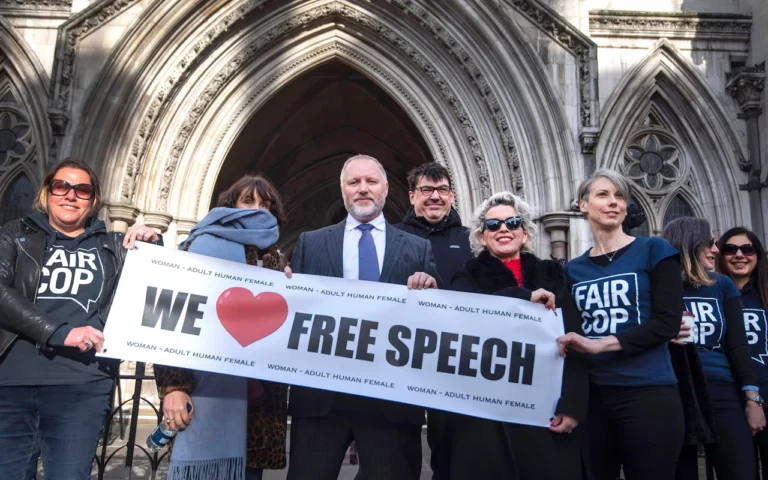Back in March, the Home Office published its first ever Code of Practice on non-crime hate incidents (or NCHIs), after the Home Secretary Suella Braverman said she was “deeply concerned” about police “wrongly getting involved in lawful debate in this country” by focusing on hurty feelings. Under this new Code of Practice, police would be required to exercise their common sense and be mindful of people’s right to free speech before recording an NCHI.
Some 120,000 people had NCHIs recorded against them in England and Wales between 2014 and 2019, including children. Particularly troubling is the fact that they can show up during an enhanced criminal records checks that candidates are asked to produce when applying for certain jobs, such as teacher or carer.
Once the Code of Practice has been given the Parliamentary stamp of approval, police forces in England and Wales will have to wade through NCHIs in their databases and remove any that wouldn’t merit being recorded under the new guidelines, which we believe is the vast majority. Consequently, if you think an NCHI has been recorded against your name please contact us and we can start the process of getting it removed. You can see some guidance we’ve already published about that here. (And you can also read our 2021 briefing on NCHIs here.)
So, that’s the good news.
The bad news is that earlier this month the College of Policing, a taxpayer-funded quango that provides national advice to police forces in England and Wales and which came up with the concept of NCHIs in 2014, published its own ‘interpretation’ of the Code of Practice, referred to by the College as “authorised professional practice” (or APP).
At the time that struck the FSU as an odd decision. After all, the intention of the Home Office was for the Code of Practice to be adopted wholesale by the College as its new operational guidance, not as something that needed to be ‘interpreted’.
It turns out that we were right to be suspicious, because as FSU Research Officer Carrie Clark has since confirmed, the APP effectively gives a woke spin to Home Secretary Suella Braverman’s draft Code of Practice, with the result that police officers could now continue to arrest people for expressing controversial (yet nonetheless perfectly lawful) opinions.
It was while preparing the FSU’s submission to the College of Policing’s public consultation on its new guidance that Carrie spotted a number of significant discrepancies between that document and the Home Secretary’s Code of Practice. We passed this information to the Telegraph which then broke the story (here).
One of the clearest benefits of the new Code of Practice is that it provides no less than 11 examples of potential scenarios police officers and staff may encounter when managing reports of non-criminal incidents, 63% of which advise the police explicitly not to record one. The examples cover all the protected characteristics, including believing in the reality of biological sex. That’s important because tens of thousands of NCHIs have been recorded against feminists for expressing that belief.
By contrast, the College of Policing’s version provides just eight examples, only 12.5% of which advise the police explicitly not to record. In addition, three of the examples concern the protected characteristic of disability, meaning that the examples are heavily skewed towards this particular protected characteristic.
While some examples included in the College of Policing’s version have been taken almost verbatim from the Code of Practice, others appear to have been edited so as to be extremely unhelpful to anyone trying to understand contemporary challenges faced by the police. This is particularly true of the only example that concerns gender critical belief.
Example C in the Code of Practice describes someone complaining to the police that a Tweet expressing the view that biological sex, not self-declared gender identity, should determine access to single sex spaces such as women’s changing rooms is ‘transphobic’. The Code recommends that this should not be recorded as an NCHI.
But in the College of Policing’s version, this has been inverted, with an example given of a gender critical feminist accusing a pro-trans local authority of committing a ‘hate incident’. The guidance advises the police not to record this as an NCHI. That is a bizarre inversion of the Code of Practice’s advice and is unlikely to lead to fewer NCHIs being recorded against gender critical feminists.
The intention of the Home Secretary couldn’t be clearer: she wants officers to stop policing our tweets and start policing our streets. But the College of Policing seems determined to thwart her. We will be keeping a close eye on this one.




